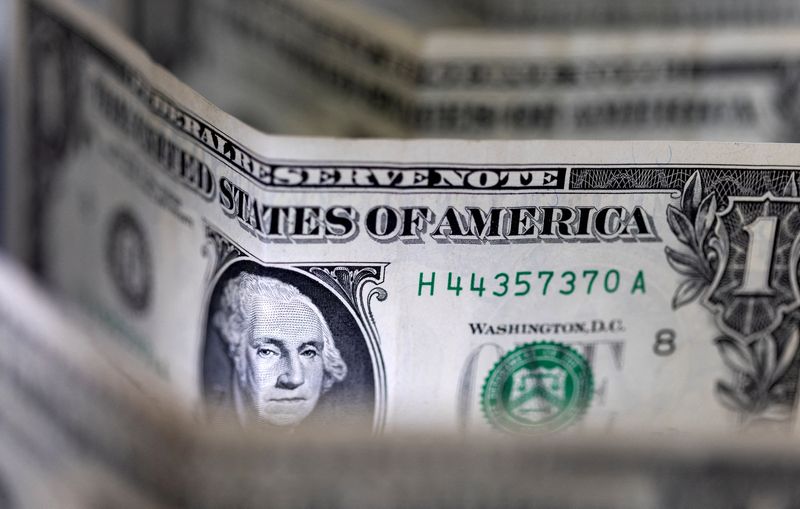Investing.com — The dollar rose to a nearly four-month high on Wednesday, while Asian currencies fell across the board, after early vote counts showed Donald Trump with a clear lead in the 2024 presidential election.
The Japanese yen and Chinese yuan were among the hardest hit by this trend, with reports suggesting that the Chinese government had intervened to halt further yuan weakness.
Broader Asian currencies also weakened significantly as markets braced for a second Trump presidency, potentially keeping interest rates high and the dollar strong in coming years.
The dollar rises as Trump leads in early voting
The and rose almost 1.4% each in Asian trading, reaching their strongest levels since early July.
Early vote counting reporting by the Associated Press showed Donald Trump comfortably ahead of Kamala Harris with 198 electoral votes, compared to Harris’ 112 votes.
Trump was also seen leading in key battleground states, including North Carolina, Georgia, Pennsylvania and Wisconsin.
The Trump presidency is expected to see increasing protectionist policies from the US, which will likely lead to greater dollar strength. Trump is also expected to pursue more inflationary policies, which will keep interest rates higher in the long term.
U.S. Treasury yields also shot up on this idea, reaching a four-month high.
The Chinese yuan weakens on reports of intervention
The Chinese yuan weakened on Wednesday, rising 0.6%. The yuan’s offshore pair rose 0.8%.
Trump has promised to impose steep tariffs on China if he is re-elected, presenting a tougher prospect for the yuan if he becomes president.
Reuters reported that major Chinese state banks were selling dollars on the open market to counter further yuan weakness.
The focus this week is also on a meeting of China’s National People’s Congress, where the government is widely expected to approve more budget spending in coming years.
Broader Asian currencies weakened sharply on the prospect of a Trump victory. The Japanese yen was hampered by this trade, with the pair rising 1.6% to a three-month high. The yen’s weakness also kept traders on edge about possible government interventions in the currency market, following recent verbal threats from ministers.
The Australian dollar pair fell 1.5%, while the South Korean won pair rose 1.6%.
The Singapore dollar pair rose 1.4%, while the Indian rupee pair remained just below record highs.


